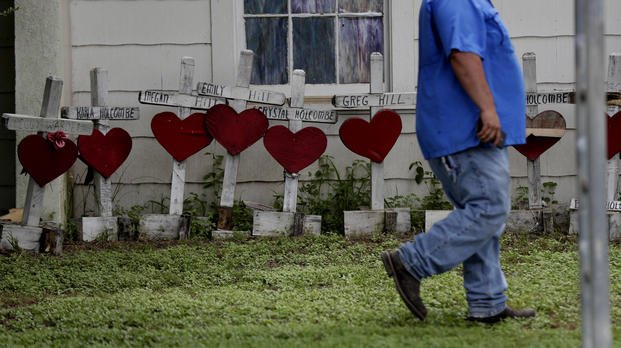A new study has found that a history of military service is a common characteristic among perpetrators of mass casualty attacks in the U.S. -- and veterans involved in those attacks are far more likely to be successful.
The National Consortium for the Study of Terrorism and Responses to Terrorism, known as START, -- a research group at the University of Maryland -- analyzed a database of thousands of extremist crimes going back to 1990 and discovered that, in that group, people with military backgrounds "are 2.41 times more likely to be classified as mass casualty offenders than individuals who did not serve in the armed forces."
While around three out of four plots that were noted in the database were foiled, "the rate of successful mass fatality crimes involving perpetrators with military backgrounds is nearly two times higher" when compared to civilians.
Read Next: House GOP Claims Pride Month Flags at VA Facilities Are 'Discrimination, Political Posturing'
Veterans and service members aren't more likely to radicalize to the point of violence compared to civilians but, when they do, "they are more likely to plan for, or commit, mass casualty crimes, thus having an outsized impact on public safety," according to the START researchers.
Military experience "is the single strongest individual-level predictor" of whether a person will commit a mass casualty event.
The new analysis comes as the Pentagon and the services try to grapple with the idea of extremism within the ranks. Following the violent insurrection at the U.S. Capitol on Jan. 6, 2021, and the subsequent arrests, the extent of the military's problem with extremism became much more visible than ever before.
Just months after the insurrection, the first active-duty service member -- a Marine officer -- was arrested by federal investigators for his role in the day's destruction.
Since then, however, more active-duty, reservist and National Guard service members, as well as scores of veterans, have been arrested, charged and convicted with crimes ranging from trespassing all the way to seditious conspiracy.
The START researchers did not include data from Jan. 6 in their analysis, however, because of the "variation in the extent of the offenders' premeditation and their criminal behaviors."
However, they say that their data shows that, between 1990 and 2022, 170 people with military backgrounds plotted 144 unique mass casualty terrorist attacks in the U.S.
Diving into that group, the researchers found that the leading two ideologies among the group were anti-government militias and white supremacists.
In fact, more than 70% of those were linked to far-right domestic extremist groups and movements, including anti-government groups and militias such as the Boogaloo movement and the Oath Keepers. Only 15% were considered to be connected to Islamist extremism.
The study also found that almost 80% of the offenses happened after the person left the armed forces, with nearly half having been out of the military for a decade or more. Just under one-third received something other than an honorable discharge -- researchers noted that was a significantly higher percentage when compared to an estimated 16% of other-than-honorable discharges among all vets.
In response to the findings, the report recommends that the military step up data collection on incidents to help with future analysis and to add more civic education during a service member's initial training; as part of their professional military education; and as a central feature of the Transition Assistance Program, or TAP, the mandatory training given before separation from service.
The report argues that there need to be stronger "efforts to combat the recruitment of service members and veterans into violent extremism by implementing inoculation training and providing service members the tools they need to identify and effectively resist extremists' manipulation tactics."
-- Konstantin Toropin can be reached at konstantin.toropin@military.com. Follow him on Twitter @ktoropin.












